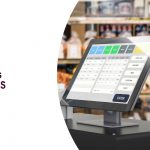Is Online Shopping The Future of Retail?
The rise of online shopping has made retail stores somewhat irrelevant to those consumers who seek the gratification of instant services. While customers enjoy the benefits of deliveries at their doorstep and online cash payment, it’s an entirely different story for retailers. As consumerism has shifted from traditional outlets to digital channels, many businesses have been forced to shut down or shifted to an e commerce platform. High street brands like H & M and Zara have recently shut down many of their retail outlets and established online destinations. Brick-and-mortar locations are still present, however, their future is now less certain than ever. The question is, will there be a point in time when retail stores completely convert into a digital experience?
Why is this happening?
One of the reasons why online shopping has prospered is because it allows you to buy products from the comfort of your home – you no longer have to get up and drive to stores and browse through countless shelves in search of your items.
Online retailers have the advantage of tracking their visitors and obtaining consumer data through various surveys. They can analyze their target market and determine where the majority of their consumers are located; this type of information helps companies in changing their marketing strategies to cater to their customers efficiently.
It is relatively difficult for physical retail stores to obtain this type of raw data, which is why many companies have turned to third-party devices that help them navigate traffic.
The rapid success of online shopping is, therefore, convenient for both consumers and retailers
Consumer behavior
Recent surveys have concluded that with increased consumerism and globalization, consumer behaviour has changed drastically. People no longer wait in queues to buy groceries and with the time saved, they are engaged in social media platforms. Hence, much of their time is spent gaining inspiration for product ideas. Instead of looking at advertisements for product information, consumers view content posted by other consumers as more honest and they tend to rely on each others’ reviews of the products; rather than blindly buying products that companies manipulate them into purchasing. The shoppers of today are savvier and on the lookout for the best deals possible.
Social influencers
Influencers on social media platforms provide guidelines for consumers regarding expenditures. They review a variety of products and consumers tend to follow their footsteps. Now since retail outlets find it hard to keep up with changing consumer behavior, they plan marketing strategies by using social media influencers to manipulate the choices of consumers. Influencers offer a number of benefits, including large and avid audiences of their own, and the ability to generate high-quality content consistent with both a brand’s aesthetic and the desired look-and-feel of a fellow consumer.
To overall summarize the debate, we can start by looking at the advantages of owning a retail outlet:
- Immediate availability of products and no risk of delays.
- Multisensory experience – shopping is an entertaining activity.
- Fresh food and drink is also sometimes provided.
- Honest advice is given by sales assistants and other employees regarding certain products.
- Trusted and secure products.
- Goods are sometimes tried and/or tested for consumer satisfaction.
- Easy return/ exchange process.
And now here is a look at the advantages of online shopping:
- Convenience: no need to visit the shop.
- More details about the products is available.
- Easy home delivery services are provided with the choice of either online payment or cash on doorstep.
- Better prices and price comparison.
- More variety of products, almost everything is available at one place 24/7.
- No crowds.
- Time is saved.
In conclusion, we cannot say that online shopping is the future of retail and that retail stores will become extinct one day – it is all about how companies reinvent their sales and marketing strategies according to consumer behaviour.








